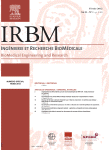
BME Frontiers
metrics 2024
Leading the Charge in Biomedical Engineering Discoveries
Introduction
BME Frontiers, published by the American Association for the Advancement of Science, is an innovative open-access journal dedicated to the burgeoning field of Biomedical Engineering. Since its establishment in 2020, this journal has aimed to bridge the gap between cutting-edge research and practical application, promoting advancements in biomedical technologies, medical devices, and healthcare solutions. Boasting impressive rankings within Scopus—64th among 398 in Medicine (miscellaneous) and 81st among 303 in Biomedical Engineering—BME Frontiers stands out as a significant contributor to scholarly communication, offering rich insights for researchers, professionals, and students alike. With consistent publication projected through 2024, the journal serves as an essential platform for disseminating high-quality research that can drive innovation and inspire new approaches in the healthcare sector.
Metrics 2024
 -
- 5.00
5.00 -
- -
-Metrics History
Rank 2024
IF (Web Of Science)
JCI (Web Of Science)
Quartile History
Similar Journals

International Journal of Biomedical Engineering and Technology
Innovating Solutions for Enhanced Patient CareThe International Journal of Biomedical Engineering and Technology, published by INDERSCIENCE ENTERPRISES LTD, serves as a pivotal platform for the dissemination of innovative research in the field of biomedical engineering. This journal, with ISSN 1752-6418 and E-ISSN 1752-6426, has been a valuable resource since its inception in 2007, boasting a converged publication timeline extending to 2024. Based in the United Kingdom, the journal aims to bridge the gap between engineering and biomedical sciences, facilitating interdisciplinary collaboration. As reflected in its 2023 Scopus ranking in the Q4 quartile of Biomedical Engineering, the journal remains accessible for researchers at various stages of their careers, contributing to its significance in promoting advancements in healthcare technologies. While currently not an open-access publication, the journal remains dedicated to enriching the biomedical engineering community by presenting novel research that addresses critical challenges, ultimately aiming to improve patient outcomes and drive innovation in medical devices and therapies.

Advanced NanoBiomed Research
Catalyzing Discoveries in NanobiotechnologyAdvanced NanoBiomed Research is a pioneering open-access journal committed to advancing the interdisciplinary field of nanobiotechnology, published by WILEY-V C H VERLAG GMBH. Since its inception in 2021, this journal has provided a platform for innovative research that bridges the gap between engineering, medicine, and materials science. With impressive rankings in Scopus, positioning it within the top quartiles of various categories, Advanced NanoBiomed Research aims to disseminate high-quality research that contributes to the understanding and application of nanomaterials in biomedical contexts. As it encompasses a wide scope—from applied microbiology to biomaterials—it serves as an essential resource for researchers, professionals, and students eager to explore the cutting-edge developments in the field. The journal promotes a collaborative environment where emerging ideas can flourish, ensuring that vital advancements in nanobiomedicine can be shared and built upon within the scientific community.

Frontiers in Medical Technology
Transforming Research into Real-World Medical SolutionsFrontiers in Medical Technology is a prominent open-access journal published by FRONTIERS MEDIA SA, based in Switzerland. Since its inception in 2019, this journal has established a significant foothold in interdisciplinary research, seamlessly integrating advancements in biomedical engineering, medical laboratory technology, and health professions. With impressive rankings, including Q2 in Biomedical Engineering and Q1 in multiple medical categories, it consistently ranks among the top journals in its field, boasting a commendable impact in the health professions domain (ranked #9 out of 78). The journal aims to disseminate innovative breakthroughs and facilitate collaboration across various specialties, making it essential reading for researchers, practitioners, and students keen on the latest developments in medical technology. Being an open-access publication since 2021, it ensures that cutting-edge research is readily available to a global audience, thus enhancing accessibility and fostering a knowledge-driven approach in medical sciences.

ANNALS OF BIOMEDICAL ENGINEERING
Exploring the future of medical technology.ANNALS OF BIOMEDICAL ENGINEERING is a premier journal in the field of biomedical engineering, published by Springer. Established in 1972, this journal has become a vital resource for researchers, professionals, and students engaged in the rapidly evolving domain of biomedical technology. With a commendable impact factor and ranked in the 76th percentile among its peers as per Scopus, it exemplifies excellence in disseminating critical research findings. The journal covers a broad scope of topics related to the integration of engineering principles with medical and biological sciences, facilitating innovations that enhance healthcare outcomes. Although open access is not offered in this journal, it remains an essential platform for scholarly communication, contributing to the continuous advancement of knowledge in biomedical engineering. ANNALS OF BIOMEDICAL ENGINEERING is not only a bridge for academics to share groundbreaking research but also an influential guide for practical applications in medicine and health technologies, making it a fundamental publication for its readership.

Biomedical Engineering-Biomedizinische Technik
Connecting Ideas, Advancing Practices in Biomedical EngineeringBiomedical Engineering-Biomedizinische Technik, published by WALTER DE GRUYTER GMBH, serves as a pivotal platform for advancing knowledge in the field of biomedical engineering and medicine since its inception in 1956. With an ISSN of 0013-5585 and an E-ISSN of 1862-278X, this peer-reviewed journal offers accessible insights into innovative research and technological advancements that are reshaping healthcare practices and biomedical applications. Although rated in the Q3 category for both Biomedical Engineering and Miscellaneous Medicine in 2023, the journal's impact factor and growing reputation demonstrate its vital role in fostering academic dialogue and collaboration. The journal is based in Germany, while its scope encompasses a diverse range of topics, thus bridging the gap between engineering and medical disciplines. Researchers, professionals, and students alike are encouraged to engage with the content that not only highlights contemporary challenges but also presents groundbreaking solutions in biomedical technology.

Biomedical Engineering Letters
Catalyzing breakthroughs in biomedical engineering.Biomedical Engineering Letters, published by SpringerNature, is a prominent journal in the field of Biomedical Engineering. With a robust ISSN of 2093-9868 and E-ISSN of 2093-985X, this esteemed journal has established itself as a vital resource for researchers and professionals seeking to advance their knowledge and share groundbreaking findings. Recognized for its quality, Biomedical Engineering Letters holds a distinguished ranking in Scopus, positioned at #94/303 (69th percentile) in the Biomedical Engineering category. The journal covers a diverse scope within biomedical engineering, providing an important platform for innovative research from 2011 to 2024 and facilitating the exchange of ideas among scholars. Although it operates under a subscription model, the journal's commitment to enhancing the field makes it an indispensable reference for those engaged in cutting-edge biomedical research in Germany and globally.

IRBM
Pioneering Innovations in Biomedical Engineering and BiophysicsIRBM, published by Elsevier Science Inc, stands at the forefront of research in the domains of Biomedical Engineering and Biophysics, boasting impressively high rankings with a Q1 category in both fields according to the 2023 evaluations. With an effective focus on cutting-edge innovations and methodologies, IRBM provides a vital platform for researchers, professionals, and students alike seeking to disseminate and access groundbreaking findings and developments. Its strong presence in the Scopus database, with ranks of #12 in Biochemistry, Genetics and Molecular Biology and #42 in Biomedical Engineering, places it in the top percentile of impactful journals in the field, making it a crucial resource for advancing knowledge and fostering collaboration. While the journal maintains a traditional subscription model, it continues to attract a diverse readership eager for insightful studies and reviews that push the boundaries of science and engineering. With a projected convergence of years extending to 2024, IRBM promises to remain a significant contributor to the ongoing dialogue in the life sciences.

Physical and Engineering Sciences in Medicine
Unlocking Potential: Engineering the Future of MedicinePhysical and Engineering Sciences in Medicine is an esteemed peer-reviewed journal published by SPRINGER, dedicated to advancing the interdisciplinary fields of biomedical engineering and biophysics. With an ISSN of 2662-4729 and an E-ISSN of 2662-4737, this journal has carved a niche for itself since its inception in 2020. Situated in the Netherlands, it serves as a global platform for innovative research and developments that bridge the physical sciences and engineering with medical applications. The journal boasts a commendable range of quartile categorizations, highlighting its impact in various sectors including Instrumentation (Q1), Radiology (Q2), and Biotechnology (Q2). Its Scopus rankings further emphasize its relevance and quality, placing it in the top 15% in several categories. Being an Open Access title, it promotes the dissemination of knowledge, ensuring that vital research is accessible to all, thereby fostering collaboration among researchers, professionals, and students alike. The journal's objectives include promoting cutting-edge research, enhancing biomedical technology, and addressing complex health challenges through innovative engineering solutions, establishing it as a vital resource in the scientific community.

Biomedical Materials
Transforming Science into Life-Saving Solutions.Biomedical Materials, published by IOP Publishing Ltd, is a premier journal dedicated to the rapidly evolving field of biomedical engineering and materials science. With a robust impact factor showcasing its influence, this journal serves as a vital platform for disseminating pioneering research from 2006 to 2024. Covering an array of interdisciplinary topics—ranging from biomaterials to bioengineering and applied chemistry—the journal consistently ranks in the second quartile across multiple categories including Bioengineering (Q2), Biomaterials (Q2), and Biomedical Engineering (Q2) as of 2023. Researchers, professionals, and students alike benefit from its contributions, exploring innovative solutions at the intersection of biology and material science. Although not an Open Access journal, Biomedical Materials remains essential in advancing our understanding and facilitating discussions surrounding state-of-the-art materials that revolutionize medical applications and enhance patient care.

BIO-MEDICAL MATERIALS AND ENGINEERING
Innovating solutions for tomorrow's medical challenges.BIO-MEDICAL MATERIALS AND ENGINEERING, published by IOS PRESS, serves as a vital platform for advancing the fields of biomaterials and biomedical engineering. With its ISSN 0959-2989 and E-ISSN 1878-3619, the journal has been consistently disseminating high-quality research since its inception in 1991, covering a diverse range of studies on the development and application of biomedical materials. Although currently classified in the Q4 quartile in several categories including biomaterials and biomedical engineering, the journal aims to appeal to a broad audience of researchers and professionals, fostering collaboration and innovation in translating new materials into clinical practice. Located in the Netherlands, it emphasizes the importance of interdisciplinary approaches and provides a forum for new ideas and findings that could significantly impact healthcare solutions. While not an open-access journal, it provides various access options to maximize the reach and engagement of its research. Researchers, practitioners, and students alike will find valuable insights and comprehensive studies within its pages, contributing to the continued evolution of biomedical sciences.